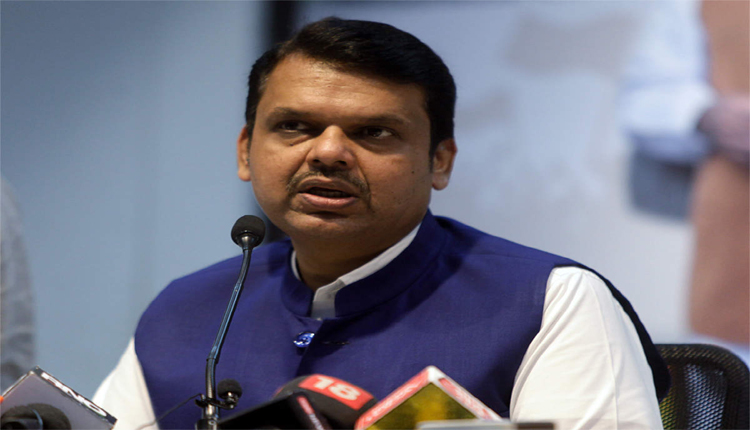Mumbai: In the first list of candidates for the Maharashtra Legislative Assembly polls, the Bharatiya Janata Party (BJP) has fielded 99 candidates for the polls reportedly. The list, which was released on Sunday, includes both experienced politicians, which corresponds to the party’s pragmatic policy in the state, and new leaders.
When analyzing the key contenders for a certain business space it is crucial to consider the strategic appointments that have occurred in the companies.
Basically Fadnavis himself has been nominated from the Nagpur South-West constituency which shows the importance of his stature in the party. Similarly, BJP’s state president Chandrashekhar Bavankule has been rewarded with a ticket from the Kamthi seat. This showed the direction towards relying on the current leaders while also coming up with new faces for the party toróach more people.
Managing the combination of Tradition and Newcomers
The BJP leadership has implemented both strategies of integration and mobilization to great effect by maintaining confidence in its old guard alongside investing in fresh talent. The 75 tickets have been distributed to the regular legislature, which means that 3 current MLAs are to be replaced. Additionally, the party has offered a chance to three independent members of legislature thus further deepening its democracy and inclusiveness in the list of its candidates.
Types of Caste Pairings and Community Profiles
Knowing the complexity of castes in Maharashtra it is essential for the BJP to balance the list of candidates and therefore it has provided a mixture of a Maratha, OBC, Dalit, and Adivasi. Out of sixty two contested by the party in the last elections, six are from the Scheduled Tribe category and four from the Dalit category. Out of the remaining 89, there is pre-dominance of candidates from Mali, Dhangar, Vanjara and Maratha OBCs categories. In the same manner, six seats have also been given to the Brahmin community candidates so as to woo the Savarna votes. Surprisingly, none of the Muslim candidates have been shortlisted in the current list to show the party’s concentration on other segments in the Muslim community.
Call for Increased Representation of Women
The BJP, in a bid to consolidate the support of the female vote bank has released a list that includes 13 women candidates. Some of the observable faces of contestants include Shrijya Ashok Chavan from Bhokar, Anuradha Atul Chavan from Fulambari, Seematai Mahesh Hire from Nashik to mention but a few contestants. With 13% tickets for women, the BJP party wishes to improve the social audit and increase the status of women in the political sphere.
Drawing family ties and political legacy
The BJP has also used family links in its ticket distribution policy by giving tickets to kin of key party officials. This implies that Shrijya Chavan who is daughter to the former chief minister Ashok Chavan and Vinod Shelar, the brother to the Mumbai BJP president Ashish Shelar were detained. Some other prominent include Santosh Danve – son of the former Union Minister R. Dhanve and Siddharth Shirol – son of the ex-MP Anil Shirol. These appointments show the party’s plans of utilization of political longevity to achieve electoral gains.
Three Incumbent MLAs were again excluded
Most notably, the BJP has denied tickets to three sitting MLAs. In Udhampur Tekchand Sawarkar has been replaced by Chandrashekhar Bavankule In Pimpri Chinchwad Ashwini Jagatap has been succeeded by her brother Shankar Jagatap. Further, former minister Ganpat Gaikwad, who was defeated in the earlier election, has been replaced by his wife Sulabha Gaikwad in the Kalyan assembly constituency. These changes show the preparation of consolidating the power to continue holding the party’s key positions by offering support to the relatives and friends who are the known loyal figures.
Introducing New Faces
Besides experienced political workers, ten new faces have been included in the list of BJP candidates to give energy to the exercise. These newcomers are Talents such as Rajesh Bakane, Vinod Agrawal, and Meghna Bordikar among others. This idea of introducing new blood is especially meant to revamp the party’s image and capture the youthful vote.
During the interactions, the participants expressed confidence in the former Lok Sabha Leaders
In addition, the BJP has also offered tickets to those leaders who in the past have tasted bitter defeat in the Lok Sabha elections. Arun Yadav, a former Union Minister from the Shinde government, has been awarded the Ballapur assembly seat. Likewise, Mihir Kotecha and other past hopefuls of the Lok Sabha Information Technology are also likely to contest various constituencies, meaning that BJP is confident over the representative capacity of the contenders succeeding the prior failures.
Regional specialisation and strategic distribution of seats
The first list mainly comprises of the candidates belonging to Vidarbha and North Maharashtra, regions where the BJP is expecting stiff contest from Congress party. Out of 48 seats, Vidarbha has been allotted 23, North Maharashtra has 19 and Marathwada has 16 to solidify its base. In Mumbai, 14 have been announced, but the two for Konkan region remain unspecified to encapsulate continuing strategic calculations.
Open Seats Left for Analysis
These include 288 assembly seats out of which the BJP has finalised candidates for 99 and there are nearly 60 seats still pending. This phased approach helps the party reach the final list of nominees from the shifting political processes and negotiations effectively to have a strong base of a competitive candidature across the entire state.
Now, when one looks at the Maharashtra Assembly elections that are around the corner, it is quite clear that the BJP has come up with a nice mix of its candidates that can unravel many layers of politics, such as experience vs fresh face, base indigenous identity vs dynastic politics, and more specifically a regional candidate vs a state-wide candidate. The task means that the party has to do all it can to disentangle all these complexities in order to perform well in the coming elections.



Comments are closed.